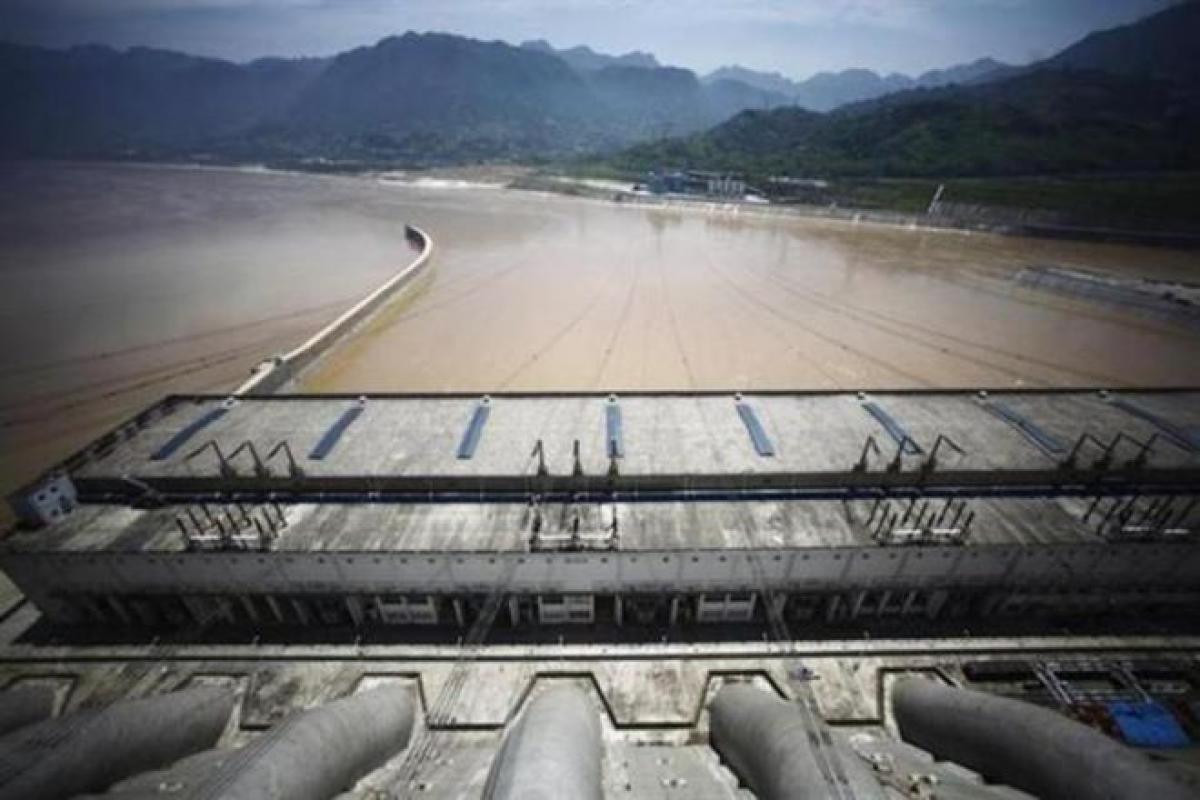Live
- COP29: CDRI announces $8 million funding for 12 projects to address climate crisis
- Anti-Telgu remarks: Actor Kasthuri Shankar moves court for bail
- Samsung AR Smart Glasses Set to Launch in 2025, Featuring Ray-Ban Meta-Like Design
- Kerala Industries Minister confident that new policy will boost plantation sector
- Madras HC plans inter-departmental monitoring committee to combat drug use in TN
- Bihar: Spotted deer dies due to heart attack in Banka district
- Mushtaq Ali T20: Shami to spearhead Bengal bowling attack, Gharami named captain
- Kharge's clarion call to oust Maharashtra's BJP-backed MahaYuti
- Why Ukraine’s Use of US Missiles Against Russia Could Lead to World War 3
- SDM slapping case: Protestors demand release of Naresh Meena
Just In

Refuting reports of China joining water wars between India and Pakistan by blocking a tributary of Brahmaputra river, Chinese official media said on Monday that Beijing is ready to join a multilateral cooperation mechanism with India and Bangladesh to share the waters.
Beijing: Refuting reports of China joining water wars between India and Pakistan by blocking a tributary of Brahmaputra river, Chinese official media said on Monday that Beijing is ready to join a multilateral cooperation mechanism with India and Bangladesh to share the waters.
Relations between China and India should not be affected by “imaginary water war”, an article in the state-run Global Times said, adding that Beijing is unlikely to use Brahmaputra river water as a potential weapon.
The article said China is willing to have multilateral cooperation with India and Bangladesh to share the waters. The proposal is significant as China has no water treaty with India to share the river waters.
“It is easy to understand the anger of Indian people as they read recent news reports saying China had blocked a tributary of the Brahmaputra river, which is a trans-boundary river flowing from Southwest China’s Tibet Autonomous Region into the northeastern Indian state of Assam and later into Bangladesh, serving as an important water source for the regions,” it said.
“The move by China to temporarily blockade the tributary to construct a dam sparked widespread concerns in India, but people in the downstream country may be ignoring one thing,” it said, adding that the reservoir capacity of the dam on the Xiabuqu river, a tributary of the Brahmaputra, is less than 0.02 per cent of the average annual runoff of the Brahmaputra.
“Frankly, there is no need for India to overreact to such projects, which aim to help with reasonable development and utilisation of water resources,” it said.
However, what is worrying is that some local Indian media outlets linked the blockage with India’s recent water dispute with Pakistan, trying to create the false impression that China may be interested in taking part in the “so-called water war between the two South Asian countries to give Pakistan silent support,” the article stated. “However, construction of the dam project on the tributary of the Brahmaputra started in June 2014,” it added.
“It is clear the blockade to construct the dam does not target India, and relevant countries should not read too much into the move,” the write-up maintained.
While it is understandable that India is sensitive to China’s water exploitation on the Brahmaputra as a downstream country, “China is unlikely to use the waters of the river as a potential weapon,” it said.
Pointing that China is the source of several trans-boundary rivers including the Lancang-Mekong River, which runs through China, Myanmar, Laos, Thailand, Cambodia and Vietnam, it said, “If China blocked the Brahmaputra for political reasons, such a move would cause panic among the five Southeast Asian nations and therefore damage China’s relationship with them.”
The article said there are cooperation mechanisms for China and the five Southeast Asian countries that can help coordinate sustainable use of water resources in the Lancang-Mekong River and share information.
“We believe that China is willing to borrow from the experience of this mechanism when it comes to promoting cooperation among the Brahmaputra’s three major riparian countries. This will be the most effective solution to the water dispute between China and India,” it said.
“Realistically, people may need to make efforts to persuade India, rather than China, to accept a multilateral cooperation mechanism involving all of the Brahmaputra’s riparian countries,” it added.
At the same the article has accused India of “making increasing efforts to exploit the Brahmaputra River through various forms”, in a bid to develop the river’s water resources.
“Some efforts may have harmed the interests of downstream Bangladesh, but the lack of bargaining power for Bangladesh, whose economy is highly dependent on India, has resulted in limited public attention,” it said.
“India may feel reluctant to establish a cooperation mechanism among the Brahmaputra’s riparian countries because such a mechanism is likely restrain India from moves that might hurt Bangladesh’s interests,” it said.

© 2024 Hyderabad Media House Limited/The Hans India. All rights reserved. Powered by hocalwire.com







